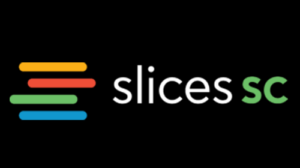Please select the classification you wish to use:
More
Multiple classification tasks with one upload (coming soon)
If you don't see the Submit button, please try scrolling down inside the demo area.
Current Supported Languages per Task
| task_parsed | ABSA 3 | CAP Major (22) | CAP Major + Media1 (29) | CAP Major + Media2 (40) | CAP Minor (214) | Emotions 6 | Emotions 9 | ILLFRAMES | Manifesto | NER | ONTOLISST | Policy Content Binary Classifier (for CAP) | Sentiment 3 |
|---|---|---|---|---|---|---|---|---|---|---|---|---|---|
| language | |||||||||||||
| ✅ | ✅ | ✅ | ✅ | ✅ | ✅ | ✅ | ✅ | ✅ | ✅ | ✅ | |||
| Armenian | ✅ | ||||||||||||
| Bulgarian | ✅ | ||||||||||||
| Croatian | ✅ | ||||||||||||
| Czech | ✅ | ✅ | ✅ | ✅ | ✅ | ||||||||
| Danish | ✅ | ✅ | ✅ | ||||||||||
| Dutch | ✅ | ✅ | ✅ | ||||||||||
| English | ✅ | ✅ | ✅ | ✅ | ✅ | ✅ | ✅ | ✅ | ✅ | ✅ | ✅ | ||
| Estonian | ✅ | ||||||||||||
| Finnish | ✅ | ||||||||||||
| French | ✅ | ✅ | ✅ | ✅ | ✅ | ✅ | |||||||
| Georgian | ✅ | ||||||||||||
| German | ✅ | ✅ | ✅ | ✅ | ✅ | ✅ | |||||||
| Greek | ✅ | ||||||||||||
| Hebrew | ✅ | ||||||||||||
| Hungarian | ✅ | ✅ | ✅ | ✅ | ✅ | ✅ | ✅ | ✅ | |||||
| Icelandic | ✅ | ||||||||||||
| Italian | ✅ | ✅ | ✅ | ||||||||||
| Japanese | ✅ | ||||||||||||
| Korean | ✅ | ||||||||||||
| Latvian | ✅ | ||||||||||||
| Lithuanian | ✅ | ||||||||||||
| Norwegian | ✅ | ✅ | |||||||||||
| Polish | ✅ | ✅ | ✅ | ✅ | ✅ | ✅ | |||||||
| Portuguese | ✅ | ✅ | ✅ | ||||||||||
| Romanian | ✅ | ||||||||||||
| Russian | ✅ | ||||||||||||
| Serbian | ✅ | ||||||||||||
| Slovak | ✅ | ✅ | ✅ | ✅ | ✅ | ||||||||
| Slovenian | ✅ | ||||||||||||
| Spanish | ✅ | ✅ | ✅ | ||||||||||
| Swedish | ✅ |






This project was supported by the Ministry of Innovation and Technology NRDI Office within the RRF-2.3.1-21-2022-00004 Artificial Intelligence National Laboratory project; the V-Shift Momentum Project of the Hungarian Academy of Sciences; Miklós Sebők's Excellence project (identifier: 151324), which is funded by the Hungarian National Research, Development and Innovation Office's National Research Excellence Programme; and received additional funding from the European Union's Horizon 2020 program under grant agreement no 101008468. We also thank the Babel Machine project and HUN-REN Cloud (Héder et al. 2022; https://science-cloud.hu) for their support. We used the machine learning service of the Slices RI infrastructure (https://www.slices-ri.eu/).
HOW TO CITE: If you use the Babel Machine for your work or research, please cite this paper:
Sebők, M., Máté, Á., Ring, O., Kovács, V., & Lehoczki, R. (2025). Leveraging Open Large Language Models for Multilingual Policy Topic Classification:
The Babel Machine Approach. Social Science Computer Review, 43(2), 295–317. https://doi.org/10.1177/08944393241259434
GDPR Compliance Statement
- Nature of the Uploaded Data: The files uploaded by users to the tool do not contain personal data as defined in Article 4(1) of the GDPR, which specifies personal data as "any information relating to an identified or identifiable natural person ('data subject')".
- Data Process: The files submitted to our tool are stored in a secure cloud environment to allow processing and generation of the output (the coded CSV file). Personal data provided in connection with the file upload—such as the submitter's name, email address, and similar details—are used exclusively for the purpose of sending the coded files back to the user and identifying the organisation of our users. This processing is conducted in compliance with the purpose limitation principle (Article 5(1)(b)) and the data minimisation principle (Article 5(1)(c)) of the GDPR. By submitting the files, the user consents to this data processing, which is strictly limited to returning the results and identifying the file owner. The personal data is stored securely and retained solely for these purposes. In accordance with Article 17 of the GDPR (Right to Erasure, or "Right to be Forgotten"), users may request the deletion of their personal data at any time. Such requests will be processed promptly, and all related personal data will be permanently deleted from our systems.
- Training Purposes: We do not use personal data to train machine learning models or perform any other type of analysis. When submitting files, the submitter must declare that the uploaded CSV files do not contain any personal data, as stated in the consent agreement. This approach aligns with the purpose limitation principle (Article 5(1)(b)) of the GDPR, which requires data to be collected for "specified, explicit, and legitimate purposes" and not further processed in a manner incompatible with those purposes.
- Google Cloud Platform Compliance: The files submitted to our tool are stored in a secure cloud environment provided by Google Cloud Platform, with configurations ensuring that all processing occurs on servers located within the European Union (EU). This guarantees compliance with GDPR requirements related to data residency and cross-border data transfers. The use of Google Cloud Platform as our processing environment ensures high levels of data security and compliance with GDPR, including the application of the Standard Contractual Clauses (SCCs) for any necessary data transfers. Google Cloud's infrastructure is certified under internationally recognised standards, such as ISO 27001, ISO 27017, and ISO 27018, further ensuring the security and confidentiality of uploaded data.